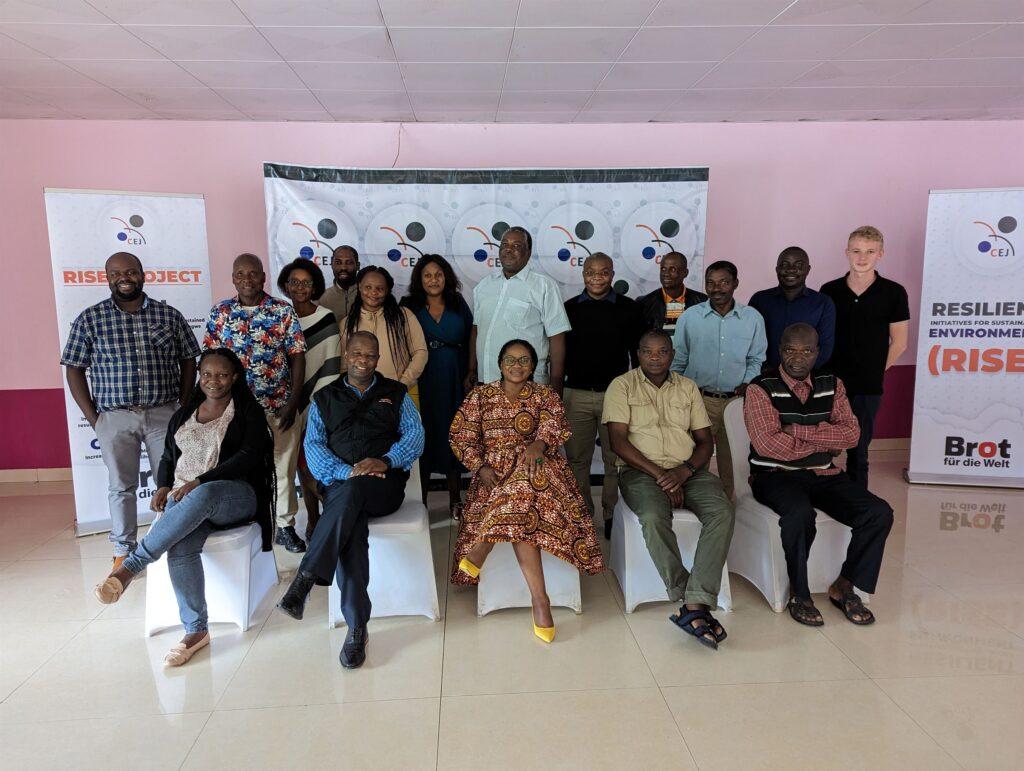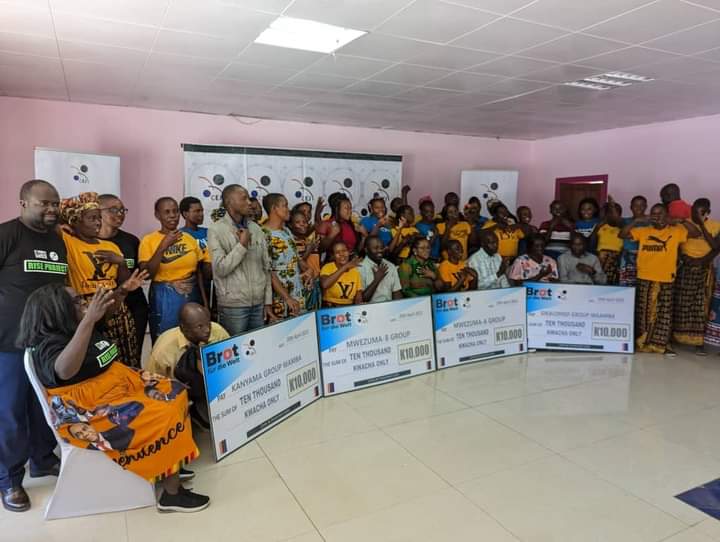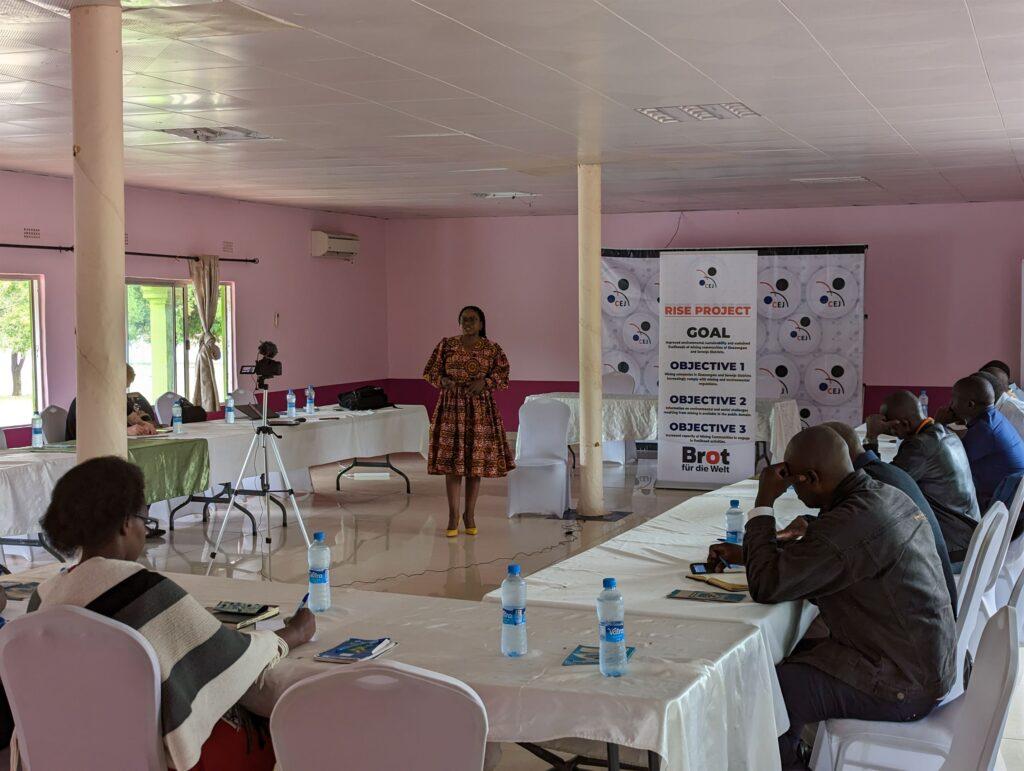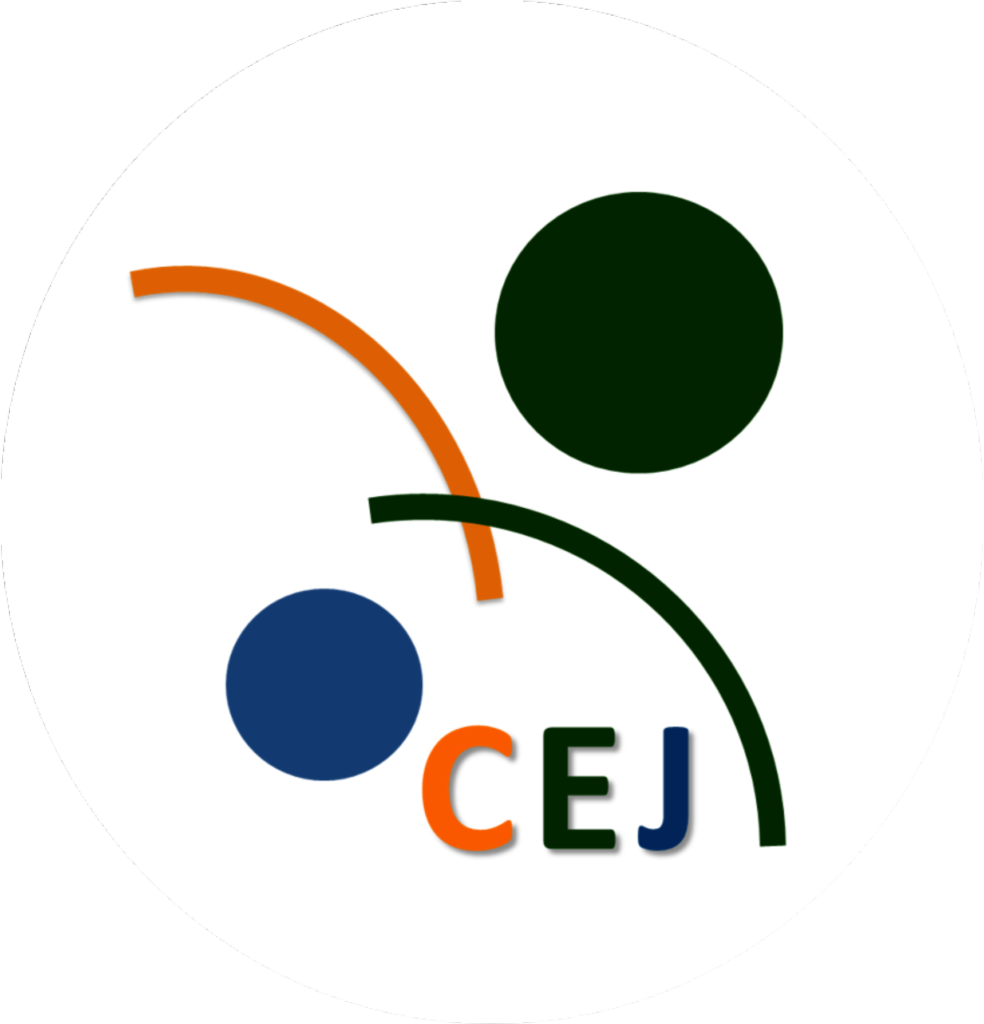Resilient Initiatives for Sustainable Environment - RISE Project

Project Summary
Centre for Environment Justice (CEJ) with support from Bread for the World (BftW) – Germany is implementing the Resilient Initiatives for Sustainable Environment (RISE) Project which focuses on building resilient and responsive communities. The project is being implemented in two Districts namely, Sinazongwe in the Southern province and Serenje in the Central province.
Objectives
- Mining companies in Sinazongwe and Serenje Districts increasingly comply with mining and environmental regulations.
- Information on environmental and social challenges resulting from mining is available in the public domain.
- Increased capacity of Mining Communities to engage in livelihood activities.
Overall goal
Improved environmental sustainability and sustained livelihoods of mining communities of Sinazongwe and Serenje Districts.
Expected Outcomes
- Strengthened monitoring and evaluations of the performance of mining activities and operations.
- Increased restriction and scrutiny of Environmental Impact Assessments (EIAs) by the Zambia Environmental Management Agency
Project inceptions engagements
The Project Inception phase of the Resilient Initiative for Sustainable Environment (RISE) project, implemented by the Centre for Environment Justice (CEJ), involved a series of comprehensive engagements aimed at setting the foundation for the project’s successful execution. These engagements encompassed various activities and consultations to gather information, establish stakeholder relationships, and align project objectives with the needs of the target communities and the overarching environmental justice framework.
The initial step involved the identification of issues highlighted in the preceding intervention and lessons learnt from the Mining Community Voice project. Furthermore, the step involved conducting an in-depth assessment to gather existing data, reports, and studies relevant to the project’s focus areas. This helped the CEJ team comprehensively understand the local environmental challenges, socio-economic dynamics, and the legal and policy landscape surrounding sustainable development and environmental justice. The research also provided valuable insights into the existing initiatives, key stakeholders, and potential areas for collaboration.
CEJ team further organized a series of stakeholder consultations and community engagement sessions. These engagements aimed to involve local communities, government authorities, non-governmental organizations, academic institutions, and other relevant stakeholders in the project planning process. The team actively sought the communities’ and stakeholders’ perspectives, concerns, and aspirations, ensuring that their voices were heard and considered throughout the project’s development.
The consultations and community engagements also facilitated the identification of priority areas for intervention and helped shape the project’s key objectives, activities, and outcomes. Through interactive workshops, focus group discussions, and one-on-one meetings, the CEJ team gathered valuable insights into the communities’ specific environmental justice issues, including pollution, natural resource management, climate change, and access to justice.



Findings Summary
The Project Inception phase yielded significant findings that provided crucial direction for the RISE project. These findings can be summarized as follows:
- Environmental Challenges: The research highlighted a range of environmental challenges affecting the project’s target communities, including water pollution, deforestation, land degradation, and inadequate waste management practices. These challenges had severe implications for the local ecosystems, public health, and overall community well-being.
- Socio-Economic Dynamics: The findings revealed a complex interplay between environmental issues and socio-economic factors such as poverty, inequality, and limited access to basic services. The communities faced economic vulnerabilities, marginalization, and limited livelihood opportunities, exacerbating their vulnerability to environmental risks.
- Legal and Policy Landscape: The desk research identified gaps and opportunities within the existing legal and policy framework pertaining to environmental protection and justice. It shed light on the need for stronger enforcement, improved regulatory mechanisms, and increased public participation in decision-making processes.
- Stakeholder Analysis: The stakeholder consultations and community engagements helped map out the diverse range of stakeholders involved in environmental justice issues. This analysis identified potential partners, allies, and influential actors who could contribute to the project’s success. It also highlighted the importance of building strong partnerships and fostering collaborative relationships to address complex environmental challenges.
- Community Perspectives: Engaging directly with the communities revealed their deep-rooted connection to the environment and their aspirations for a sustainable and just future. The findings emphasized the need to empower local communities, amplify their voices, and incorporate their traditional knowledge and practices into the project’s strategies and interventions.
Project Implementation
The project is being implemented in two (2) districts namely; Sinazongwe and Serenje.
